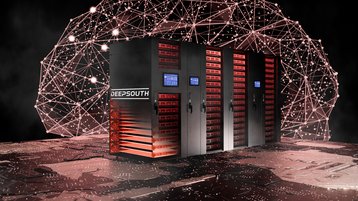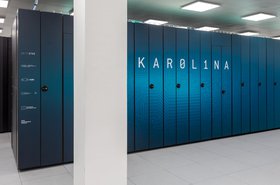Western Sydney University is set to get a new supercomputer by April 2024.
The DeepSouth high-performance computing (HPC) cluster is being provided by the International Centre for Neuromorphic Systems, and will reportedly be capable of 228 trillion "synaptic" operations per second.
The supercomputer has been designed to imitate the workings of a human brain and uses spiking neurons to solve problems.
Little information about the hardware used to achieve this has been shared, beyond ICNS director Professor Andre van Schaik describing the system as "requiring less power and enabling greater efficiencies," which "contrasts with supercomputers optimized for more traditional computing loads, which are power-hungry."
van Schaik added that this type of simulation cannot be done using GPUs and CPUs as it is "just too slow," and that DeepSouth will change that.
How this will be achieved is unclear, however, DeepSouth is said to be using commercial off-the-shelf configurable hardware as opposed to custom chips. DCD has contacted the ICNS for further information.
"This platform will progress our understanding of the brain and develop brain-scale computing applications in diverse fields including sensing, biomedical, robotics, space, and large-scale AI applications," said van Schaik.
DeepSouth will also use Field Programmable Gate Arrays (FGPAs) to enable hardware reprogramming.
The DeepSouth project has been contributed to by the University of Sydney, the University of Melbourne, and the University of Aachen, Germany.
Neuromorphic supercomputers are not a new concept. In 2018, the US Air Force Research Laboratory unveiled a neuromorphic supercomputer based on IBM's TrueNorth technology (which also inspired DeepSouth's namesake).
In 2021, Intel released a successor to its original Loihi neuromorphic chip, Loihi 2.
Earlier this month DCD reported that OpenAI had previously committed to purchasing $51m chips from a neuromorphic chip company backed by Sam Altman, Rain AI. Those chips are expected to be available as soon as next October.
DCD has previously written a deep-dive into the process of developing a supercomputer to replicate the human brain, and the challenges facing it.







